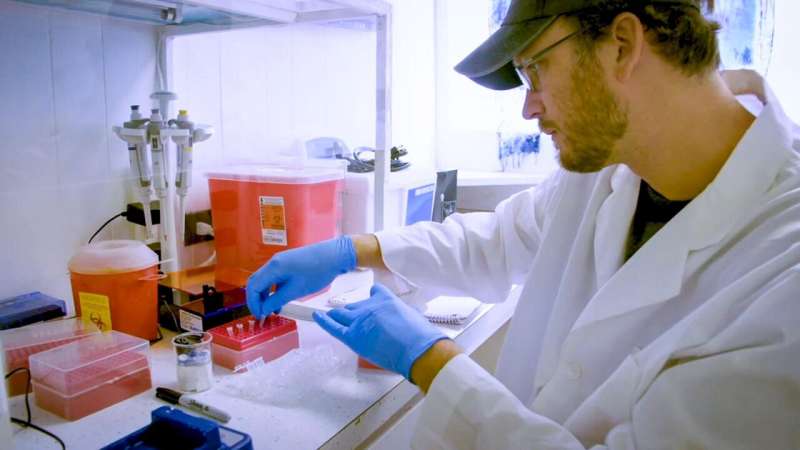This article has been reviewed according to Science X's editorial process and policies. Editors have highlighted the following attributes while ensuring the content's credibility:
fact-checked
peer-reviewed publication
trusted source
proofread
Researchers find traces of disease in dolphin poop: A potential tool for live health monitoring

Scientists have found a new non-invasive way to identify a deadly virus in dolphins that could be a testing breakthrough. For the first time, researchers at the University of Hawai'i Health and Stranding Lab have successfully detected Fraser's morbillivirus, which can cause respiratory and neurological disease, in the feces of a dolphin.
The findings published in Marine Mammal Science provide a new tool to identify and monitor threats faced by Hawaiʻi's marine mammals.
This is particularly important for Hawai'i's dolphin populations, where a disease outbreak could have devastating effects. Marine mammals, recognized as sentinels of ocean health, have an important role in maintaining the delicate balance of marine ecosystems.
Researchers collected feces from a stranded dolphin infected with the virus and conducted experiments to simulate the detection of the disease in seawater. The team demonstrated the surprising ability to detect Fraser's morbillivirus in dilutions of feces in seawater at a level of 1 to 1,000.
Using this non-invasive approach, testing poop collected from live animals in the wild will enable researchers to assess the health status of marine mammals with a hands-off approach.
"This is the first time that a pathogen responsible for mass mortalities of dolphins and whales, and that affects multiple organ systems other than the digestive tract, has been demonstrated in the feces of whales and dolphins," said Kristi West, lead author and an associate researcher at the Hawaiʻi Institute of Marine Biology.
Testing in the wild
Morbilliviruses have been responsible for mass mortalities of dolphins and whales during outbreak events. This study recommends that permitted research vessels studying dolphins and whales collect fecal samples using flasks and nets to test for disease.
"It is logistically difficult to test live, wild dolphins for the presence of disease, and the current study provides a method that can be applied to detect infectious disease in live dolphins and whales," said Cody Clifton, a co-author and graduate student at the College of Tropical Agriculture and Human Resources.
More information: Kristi L. West et al, Detection of cetacean morbillivirus in dolphin feces and the potential application for live cetacean health monitoring, Marine Mammal Science (2023). DOI: 10.1111/mms.13064
Journal information: Marine Mammal Science
Provided by University of Hawaii at Manoa




















